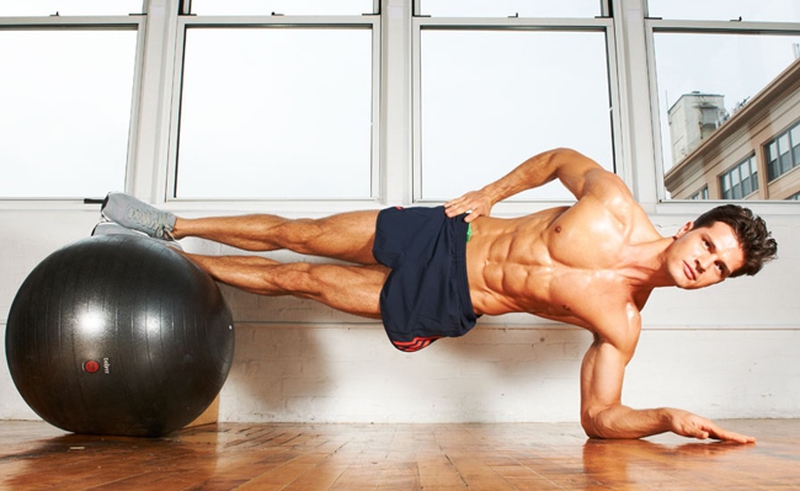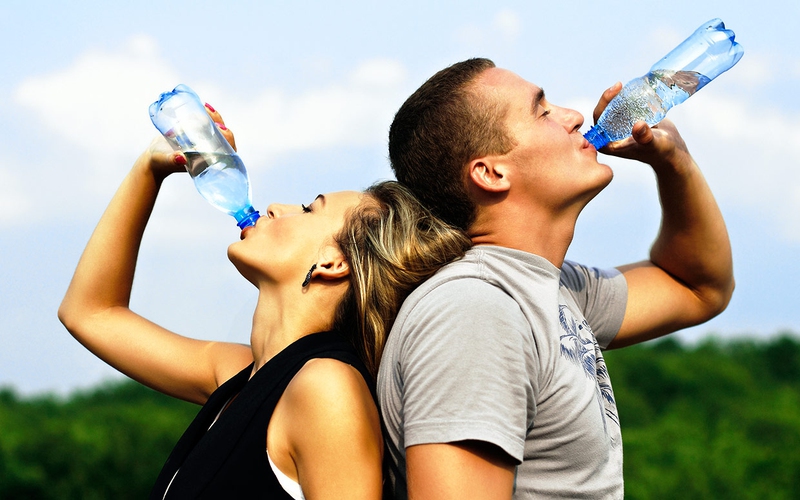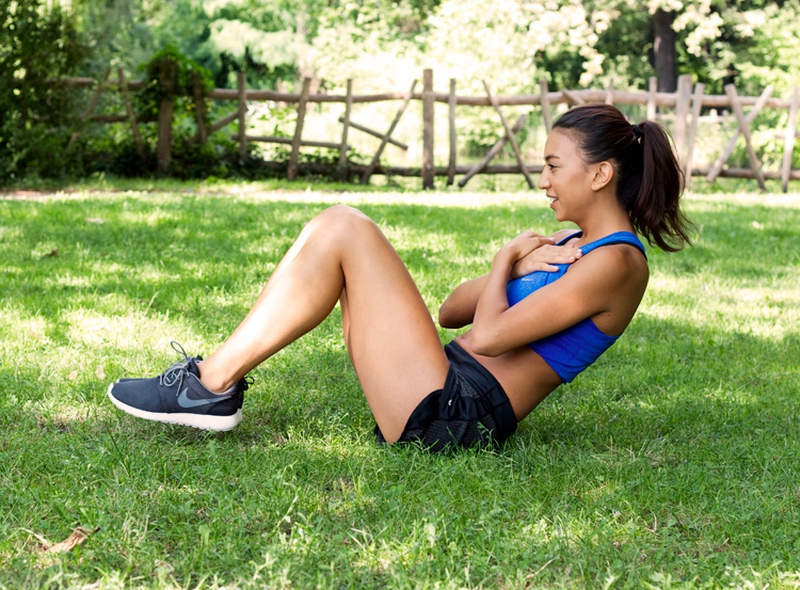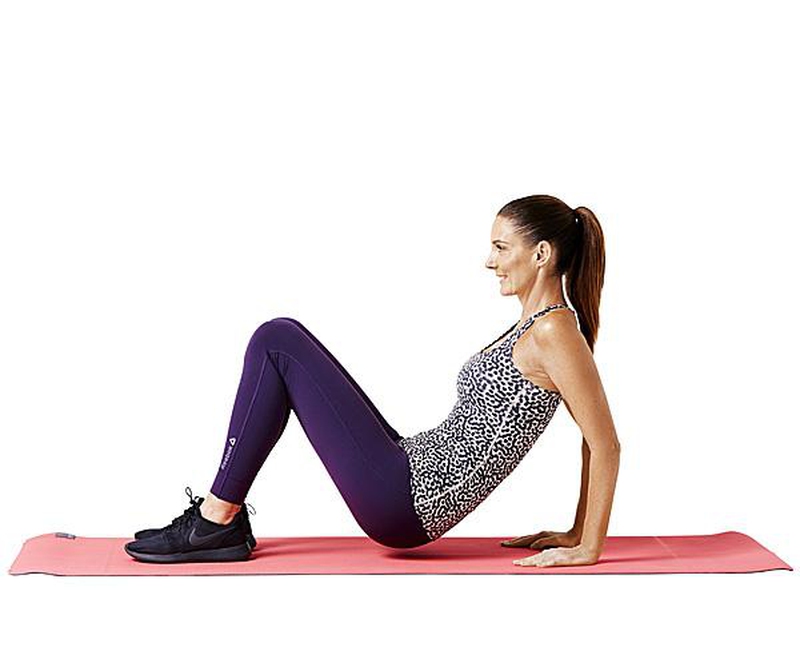Throwing up after working out is fairly common phenomenon to exercise, even though not everyone will experience it. It could be the result of some exercise problems. Nausea can discourage you from working out, so it's important to find out the reasons for post-workout vomiting in order to know how to prevent the phenomenon to achieve your fitness goals.

What Causes Throwing Up After Working Out?
Excessive Workout Intensity
Engaging in a strenuous workout routine can lead to post-workout vomiting mainly because excessive workout intensity increases the buildup of lactic acid in the blood. Your muscles burn carbs and produce lactic acid when the levels of oxygen go down during exercise. Sometimes, your body produces lactic acid but your muscles fail to utilize it efficiently, which results in a buildup of lactic acid in the blood. This can aggravate the vagus nerve, which connects your brain with the digestive tract and the esophagus. You may throw up when the vagus nerve becomes aggravated.
Eating Carelessly Before Workout
Not eating the right food before your workout can also have an impact on how you feel during and after your workout. Your digestive system requires time to process foods rich in fat or protein. Your body will not be able to digest these foods if you consume them right before your workout, which may cause nausea, abdominal discomfort, and vomiting during or after your workout. You should have low fat, high-carbs foods before your workout, such as bananas or whole-grain crackers. Your stomach can digest these foods quickly and provide you with energy to complete your workout.
Extreme Dehydration
Pushing your body hard when you feel dehydrated can cause all sorts of problems including throwing up after working out. It usually happens when your workout intensity on the higher side and you sweat a lot during a session. You will lose water and salt, which affect your electrolyte balance and make you feel nauseous.
Heat Exhaustion
Your body generates heat when you exercise hard in the gym. You need to take enough rest between sets to ensure your body cools off properly. Not paying attention to it would make you lose vital nutrients and water in the form of sweat. This leads to heat exhaustion, which eventually makes you feel dehydrated. Therefore, you should avoid strenuous exercise in hot and humid weather or you may end up dealing with nausea and vomiting after exercise.
Vagal Reaction
Your heart rate goes up quickly when you exercise hard. However, some people have an opposite effect – their heart rate goes down when their bodies are excited. This is known as a vagal reaction. With your heart rate becoming slower, your blood pressure will drop as well. This drop in blood pressure would result in nausea and vomiting.
Hyponatremia
Your body has its own way to deal with dehydration. When you exercise hard and lose salts and water, your brain activates a chemical called ADH, which signals kidneys to hold on to free water to maintain the electrolyte balance in the body. It could cause a sudden drop in sodium levels in the body, especially if your diet lacks essential minerals and salts. The electrolyte balance will become disturbed and you will end up experiencing vomiting and nausea.
Gastroesophageal Reflux (GERD)
You develop this condition when the esophageal sphincter is not strong enough to keep stomach acids from moving up the esophagus. You are more likely to experience it after an intense workout. The esophageal sphincter relaxes involuntarily and allows the digestive acids to move up the esophagus, into the throat. This can cause a slight regurgitation or full-blown nausea.
How to Prevent Throwing Up After Working Out
Do Not Eat Immediately Before You Workout
Even when you do not eat protein-rich food, it is still important to avoid eating anything immediately before your workout. Your body will require time to digest the food, and undigested food can cause all sorts of discomfort during and after exercise.
Eat Something a Couple of Hours Before Your Workout
It is also not a good idea to exercise on an empty stomach. The best thing is to eat something about a couple of hours before you start your workout session. You are not going to have a great exercise session if your body has already used up its energy reserves. In this situation, you are going to sweat more and are likely to feel nauseous during your workout. Be sure to consume a meal of 300 calories or more about two hours before you start your workout. Ensure to get these calories mostly from carb-rich foods.
Avoid Heat Exhaustion
You should make a conscious effort to exercise in a temperature-controlled environment. It helps prevent heat exhaustion that leads to dehydration. You are also at an increased risk of organ failure if your body temperature goes beyond 104F.
Intensify Your Workouts Slowly
Do not increase the intensity of your workouts suddenly. Your body cannot adjust itself to this change. This might lead to overexertion that may result in lightheadedness, nausea, and even fainting. The best thing is to build up your strength gradually.
Keep Your Body Hydrated
It is important to continue drinking water before, during and after your workout to avoid throwing up after working out. This helps replace all the water you have lost during strenuous exercise and prevent nausea and vomiting. Just avoid drink too much water during exercise because you are again going to throw up if your stomach is too full. Drink water in steady sips to avoid any issues.






View All Comments /Add Comment